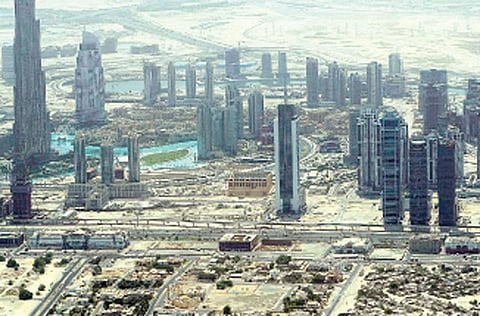Diversification key to UAE's growth
The UAE economy is presently "at a crossroads", Daman Investments said in a report

Dubai: Structured initiatives to diversify the economy, more liquidity through the introduction of new financial instruments and clarity on the government's overall debt obligation could help the country's economy move forward, officials said.
The UAE economy is presently "at a crossroads", Daman Investments said in a report issued Tuesday.
The report says there are "tough factors to consider, and tough decisions to be made". While the "economic miracle" that is the UAE is still viable, the very real economic situation in which the country finds itself has thrust upon it a set of challenges that will require "courage and ingenuity to overcome".
The report suggests rationalisation of sectoral contribution to GDP that will help the economy balance out and reduce dependency on certain sectors.
Two years into the global economic crisis, one thing is crystal clear: The opinion that the crisis will be over in 24 months and that it will be business as usual after that has proven to be highly optimistic, the report said.
"The reality is that tough economic times are with us for a while and that nations need to factor in a new set of realities in order to have a more realistic view of the environment in which they operate. The UAE is no exception to this new reality," said Daman managing director Shehab M. Gargash.
"About 70 per cent of all businesses within Dubai are involved in trade and retail industries. More structured initiatives are needed," the report said.
"Currently, the bulk of commerce is controlled by the private sector but it is heavily skewed towards certain sectors. For example, 70 per cent of all businesses within Dubai are involved in trade and retail industries."
The report suggested that the government promote the development of small business enterprises in other sectors with the use of major incentives and government assistance.
Shehzad Janab, Head of Asset Management and Advisory at Daman Investments, told Gulf News, "There needs to be a new approach from the government to stimulate the small and medium enterprises (SMEs), as they are the pillars of the country's economy. These could include providing incentives to SMEs in manufacturing and exports as well as providing finances.
The UAE saw the biggest contraction within the GCC of foreign direct investment (FDI) where the value of FDI slumped 72 per cent to $40 billion in 2009, whereas the GCC's FDI fell 16 per cent to $520 billion in 2009.
Anaemic growth, liquidity concerns, a highly-publicised real estate crash, high borrowing rates and slower government development activities have all contributed to this sharp drop in FDI activity.
"Going forwards we don't expect an immediate return to active FDI participation in the UAE's economy until we have a more FDI friendly environment," the report said.
Apart from these, officials have asked the government to cut back red tape. As noted in a World Bank finding it takes approximately 62 days to start up a business in the UAE, this is reflected in the UAE's poor ranking in the ease of doing business index published by the World Bank.
Dr Khalid Maniar, managing partner at Horwath MAK, told Gulf News: "The government could now look into reducing procedures that will help fast track business licences and cut unproductive costs incurred due to the delays."
Debt situation not clear
The government's debt situation remains unclear, the report says. Citing various estimates, ranging from $90 billion to $160 billion, Daman based its projections of Dubai's debt on the International Monetary Fund's (IMF) estimates at $109 billion.
Dubai has not been able to easily access the market for debt issuance this year. However, government owned entities, such as Dubai Electricity and Water Authority (Dewa), have been able to tap the debt market as they have strong cash flow generating businesses and good transparency, albeit at a far higher funding rate. For example Dewa's recently issued (April 2010) five-year $1 billion bond was priced to yield 8.5 per cent, far higher than previous years. The Dubai government has eight bonds outstanding with maturities concentrated in the years of 2013-14. "If you look at the debt maturity profile, the next two to three years are going to be tough," Janab said. "The lack of clarity in the size of debts is forcing investors to factor in risk premium."
The report suggested the UAE's sovereign wealth funds play more active role in the domestic market in injecting liquidity that will help key economic sectors to come back strongly.
"The SWFs could play the role of market makers and help lift the markets," Janab said.



